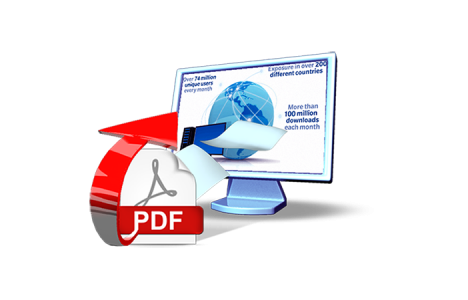Berlin Newsletter May 2022
Articles of general interest for English lessons
| Szczegóły | |
|---|---|
| Tytuł | Berlin Newsletter May 2022 |
| Rozszerzenie: | |
Berlin Newsletter May 2022 PDF - Pobierz:
Pobierz PDF
Berlin Newsletter May 2022 - podejrzyj 20 pierwszych stron:
Strona 1
Everyday English
Conversation Topics
___________________________________________________________________________________________________________________________________________________________________________________________________________
Berlin NEWSLETTER
May 2022
CATCH-UP PUBLIC HOLIDAYS?
The month of May began with that most dispiriting of German phenomena: a
public holiday that falls on a weekend. International Workers’ Day was on a Sunday
this year, and unlike countries such as Belgium, Spain, and Ireland, where ‘lost’
public holidays are typically marked by a catch-up bank holiday Monday (and a
welcome long weekend), Germany’s public holidays come and go depending on the
calendar.
Berlin’s Labour Minister, Katja Kipping has now called for Germany – or at least
Berlin – to fall in line with international best practice: “It’s about giving back to
employees something of what was taken away from them.” Responding to the call,
the Hubertus Heil, the Federal Labour Minister said the topic was “not currently
top priority,” though he did admit he found the debate “by no means unappealing.”
The Berlin-Brandenburg employers’ organization rejected the idea as “absurd.”
Tell the class what you think of the idea.
GRÜNEWALD WORKHORSES
The newest employees of the State of Berlin are two southern
German coldbloods named Bubi and Pauli. Weighing around
eight hundred kilos together, Bubi and Pauli are workhorses, and
trained specialists in forest labour. Officially registered as logging
horses, Bubi and Pauli will mainly work in the Grünewald – the
largest woodland in a city in which a fifth of the total area is covered by around
twenty million trees – with designated daily working hours of eight am to two pm.
Most of the work in Berlin’s forests is done by harvesting machines that are
capable of felling, stripping, and removing trees en masse. Though highly efficient,
the machines have a major disadvantage: They are bulky and extremely heavy. So the
horses will operate in those parts of the forest where there are no pathways, or where
there are particularly sensitive biotopes. Here they will be able to remove the felled
trunks without damaging the undergrowth. “The horses aren’t a replacement for the
machines, but a gentle supplement,” said Peter Harbauer, a forestry spokesman.
Can you think of any other industries in which work animals would be useful?
Newsletter — May 2022 1
Strona 2
Everyday English
Conversation Topics
___________________________________________________________________________________________________________________________________________________________________________________________________________
TAXI DRIVERS
Berlin’s taxi drivers are feeling the pinch. A number of different threats has hit the
city’s taxi business at the same time – including the corona pandemic, rising energy
costs, and increased competition from new rivals such as Uber. Every day in Berlin
there are one to two fewer cars on average in the taxi fleet. Two thousand drivers
have handed in their licenses in the last two years alone. In the same period the
number of rental cars in the city has risen by 2,400, with a total of 4,000 such vehicles
now in the city. Not normally known for their talkativeness, the city’s cabbies are
now speaking out in the hope that the state can help relieve their plight.
“We need help. Otherwise we won’t be around anymore,” said Leszej Nadolski,
head of the Berlin Taxi Drivers’ Guild, at the organization’s annual press conference.
Among a number of measures, Nadolski called for greater regulation of the
ridesharing industry in particular. Although it is supposed to be forbidden for Uber
cars to be hailed on the street, this was never monitored, Nadolski said. And while
taxi drivers have to offer fixed prices, Uber drivers are allowed to vary their prices
according to demand. Ridesharing companies were also allowed to cherry pick the
areas they operate in, whereas taxi drivers had to serve the whole metropolitan area.
Do you think the taxi industry needs to be supported? In what ways could this be done?
BIG BROTHER AWARDS
For twenty years, in its annual Big Brother Awards, the organization Digitalcourage has
named and shamed the companies it finds responsible for the most flagrant violations
of data protection. Heading the list this year is the German Federal Criminal Office
(BKA). Other winners include the Federal Printing Office, the Swedish Klarna Bank,
Lieferando and the Irish Data Protection Authority. The BKA won the award for the
way in which it saves and uses personal data. Contrary to statutory requirements,
these data are not adequately tagged, the awards committee said – which could
result in millions of people being unjustly treated as dangerous persons or criminals.
“We want to rub salt in the wound and push forward the debate
on data protection,” said the awards head, who goes under
the pseudonym padeluun. Lieferando won the award for
forcing its workers to download the app ‘Scoober’ which
monitors their activity in minute detail. The Federal Printing
Office was given its award for its increased use of blockchains in
various projects. This, according to the jury, was “not only not very energy efficient,
but also puts data protection at risk because in a blockchain nothing can be erased.”
Who would you have given the award to? Say why.
Newsletter — May 2022 2
Strona 3
Everyday English
Conversation Topics
___________________________________________________________________________________________________________________________________________________________________________________________________________
‘PRE-LOVED’ CLOTHING BOOM
The second-hand clothing trade is booming in Germany. Now increasingly known
by the less musty-sounding name ‘pre-loved’, the sector still makes up a mere five
present of the total fashion market. But thirty-four percent of consumers now
buy used clothing regularly; importantly, younger people are driving the market,
which is growing at pace. Some estimate the international second-hand clothing
market – which includes the popular luxury and vintage segments – to be worth thirty-
four billion euros. Mainstream high-street fashion shops are now also getting involved.
The shift towards second-hand fashion comes amid a growing backlash against the
so-called fast fashion industry. According to estimates by Greenpeace around a fifth
of newly bought clothes are hardly ever worn. Large quantities are simply thrown
away rather than reused. Fast fashion took hold between 2000 and 2014, a period
in which clothing production doubled. Its rise has come at great environmental
cost. Sixty to seventy percent of fast fashion items are made from non-
biodegradable synthetic materials. Astonishingly, a Mckinsey study revealed that the
international fashion industry in fact creates the same level of CO2 emissions
annually as France, Germany, and the UK combined.
Are you a fan of second-hand clothing? Describe the favourite item of clothing you own.
NO VAT FOR VEGAN FOODS?
Germany’s Federal Environment Agency has called for the removal of VAT on
plant-based foodstuffs. “A diet based more strongly on plants is good for the
environment and is healthy as well,” said the UBA president Dirk Messner. A VAT
exemption would also make sense in light of rising prices for fruit and vegetables,
he said. “Everyone should be able to afford a healthy diet, even those with low
incomes,” For Messner, the move would be a good supplement for the federal
government’s two-billion-euro relief package, which is intended to combat the
country’s cost-of-living crisis. “It would also take the pressure off those groups who
haven’t profited from the relief package, for example, retirees with low incomes.”
The standard VAT rate in Germany is nineteen percent. A
reduced rate of seven percent is used to subsidize staple
foodstuffs such as milk, meat, fruit, and baked goods. Yet
products and services like animal foods, flowers, and hotel
stays are also taxed at the reduced rate. In April, a new EU VAT
directive came into force. The directive sets a minimum rate of fifteen percent, but
now also allows for a complete exemption for certain goods that cover basic needs.
Do you think the VAT exemption would be a good idea? Give reasons for your answer.
Newsletter — May 2022 3
Strona 4
Everyday English
Conversation Topics
___________________________________________________________________________________________________________________________________________________________________________________________________________
ROAD RAGE
Berlin’s red-green-red coalition government is set on a collision course with its federal
red-green-yellow counterpart over the controversial extension of the
A100 motorway around the city. The sixteenth construction stage of project, which
extends the eastern part of the road, is earmarked for completion in the fourth quarter
of 2024. The federal government is now keen to accelerate construction of the
seventeenth section. But the costs for this 4.2-kilometre segment between
Friedrichshain and Lichtenberg would dwarf the 700 million spent on section
sixteen. Indeed, according to some experts, it may become the most expensive
roadbuilding project in German history. For instance, since it is to be built in a
densely populated urban area, it would involve enormous land costs and likely
require a highly expensive construction trench.
Berlin’s Senate doesn’t want to see any of this happen, however. In the 2021 coalition
agreement, the SPD, Greens, and the Left have already stated that they would not be
advancing the project in the current legislative period, which ends in 2026.
Financing the project is proving to be a major headache. While Berlin has money
for roads, the local government argues that this is needed for urgent repairs to
repairing existing roads and bridges, not for developing new routes. “We simply
don’t have the money for that,” said Alexander Kaas Elias of the Greens. Kaas also
pointed to the 2021 climate ruling of the Federal Constitutional Court, which
obliges politics to protect the conditions of life for future generations. Berlin, he
said, must find a way to quickly reduce C02 emissions – particularly in the transport
sector. The A100 extension was thus counterproductive: “A motorway can’t make
any kind of contribution to climate protection,” he said.
Berlin’s Left party has signaled that it will now resist the plans with greater
vehemence. “We’re prepared to escalate,” said the transport spokesman Kristian
Ronneburg, indicating that his parliamentary group were working on finding ways
“to stop the FDP.” For its part, the FDP – the party of the federal transport minister –
has argued that the new motorway would relieve inner city congestion, close a
gap in the transport network, and provide a better connection to the airport and
commercial areas outside the city. Each of these goals may be achievable without
extending the motorway, however.
This was the position taken by the SPD deputy, Stephan Machulik. “We stand by our
proposal to let the people of Berlin decide on this. We need the federal support
and financial resources for a sensible completion of the A104, the redesign of the
A103 and for the rebuilding of the Rudolf-Wissel Brücke. These measures will make
the surrounding neighbourhoods more livable and improve the free-flow of traffic.”
Do you think the motorway should be extended? Say why/why not.
Newsletter — May 2022 4
Strona 5
Everyday English
Conversation Topics
___________________________________________________________________________________________________________________________________________________________________________________________________________
Mini-Glossary
accelerate bescheinigen headache hier: Problem
achievable realisierbar healthy gesund
admit zugeben in light of angesichts
advance vorantreiben^ mainly hauptsächlich
amid inmitten measures Maßnahmen
annually jährlich mere bloß
area Fläche monitor überwachen
at pace zügig musty muffig
bulky sperrig on average im Durchschnitt
catch-up Nachhol- period Zeitraum
cherry pick nur die Rosinen plight Notlage
herauspicken prepared bereit sein
combat bekämpfen proposal Vorschlag
come into force in Kraft treten prove to be sich herausstellen
conditions Bedingungen reject ablehnen
congestion Verkehrsstau relief Hilfe
construction trench Baugrube relieve lindern, helfen
contribution Beitrag removal Abschaffen
damage beschädigen remove wegnehmen
demand Nachfrage responsible verantwortlich
densely populated dicht bevölkert retiree Rentner
depending je nach sensible vernünftig
deputy Abgeordneter serve bedienen
dispiriting entmutigend shift Änderung
dwarf klein erscheinen lassen staple Grund-
earmark vorsehen statutory requirements gesetzliche Anforderungen
erase löschen strip hier: entasten
exemption Befreiung subsidize subventionieren
extension Erweiterung supplement Ergänzung
Federal Constitutional Bundesverfassungsgericht supposed to, be sollen
Court
surrounding umliegend
Federal Criminal Office Bundeskriminalamt tag kennzeichnen
Federal Printing Office Bundesdruckerei take hold sich etablieren
feel the pinch merken, dass das Geld
threat Bedrohung, Gefahr
knapp wird
trade Handel
forge zwingen
unappealing unsympathisch
gap Lücke
undergrowth Unterholz
gentle schonend
weigh wiegen
hardly kaum
harvesting ernten
Newsletter — May 2022 5










